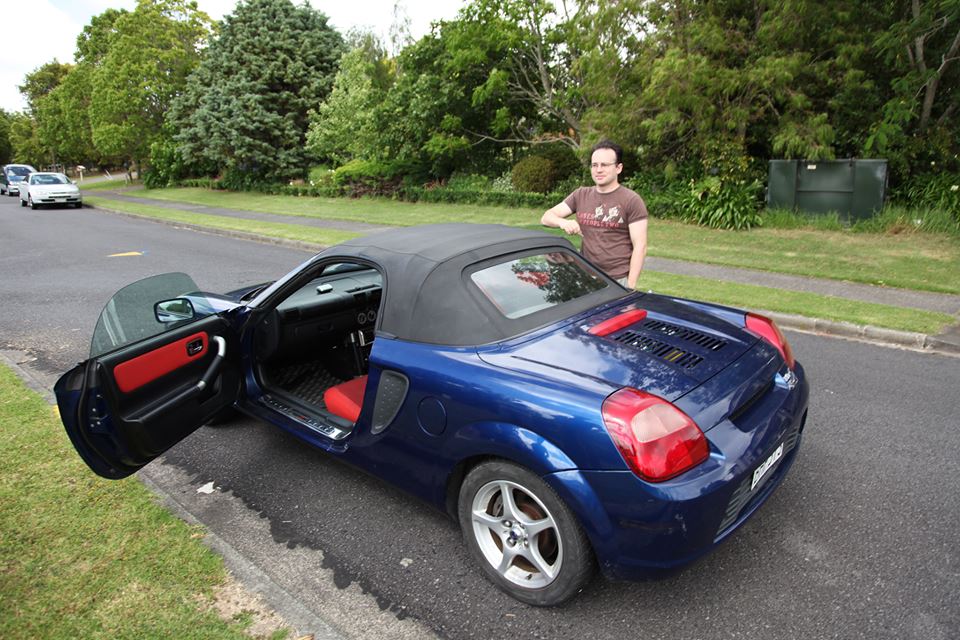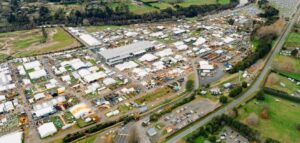The impatient man bringing the future to New Zealand
Steve West’s childhood dream has led to him creating an electric car charging network for New Zealand.

When Steve West was young he dreamed of a future full of electric vehicles.
“I fell in love with the idea of them as a child. They were painted as the future in those futuristic books you used to get. You would know the future had arrived when you were driving electric cars.”
Now in his 40s, Steve’s company, which develops electric car-charging infrastructure, is propelling New Zealand back to the future of his childhood dreams.
West, the co-founder of DJ software company Serato, saw a glimmer of his childhood dreams when Tesla’s electric Roadster launched in the United States. It was a car West desperately wanted but could not get. At that stage Tesla was not interested in selling to New Zealand.
Too impatient to wait, he bought a Toyota MRS, removed the combustion engine, and fitted lithium batteries. His project car worked but never became road legal.
The future really arrived for West when he eventually purchased a Tesla, and a Nissan Leaf, but quickly discovered an issue.
“If you want to drive further than the 120 kilometres a Leaf will go, you’re stuck. Stuck for eight, ten hours.”
His vision of the future did not include lengthy enforced stops at campgrounds tethered to campervan electric sockets every time he left town.
Fast-charging stations can fully charge electric vehicles in 10-30 minutes. In 2015 New Zealand had none.
This shortcoming niggled at West. “I was waiting for someone to solve this problem, and waiting and waiting and waiting.”
With only a few 100 electric vehicles on New Zealand roads, creating a fast-charging network was not a project the government, or private sector, was interested in taking on.
West felt the road to the future had stalled. “For a rational business decision there needs to be a business case and there is no business case if there are no cars. Conversely if you’re looking at buying an electric car the lack of any charging infrastructure is a huge disincentive. One has to happen before the other.”
West said he decided that if no one else was going to solve this problem, “then maybe I should. So I did”.
He created ChargeNet and his company is installing 105 fast charging stations around New Zealand with 50 already in place, and a further 58 set to be installed by the end of 2018. The units fully charge a car in less than 30 minutes.
Along with installing the fast charging units, ChargeNet has created a billing system. Clients receive a keyring. Tapping the keyring to the charging station activates the station and clients are billed monthly.
The government has caught up to West’s vision. In 2016, Minister of Transport Simon Bridges announced a package of measures to help drive the switch to electric vehicles, including encouraging bulk fleet purchases.
West sees a role for ChargeNet in reducing a possible sticking point for fleet purchases. Taking home the company car and charging it overnight can add about 50 percent on to a household electric bill.
ChargeNet’s billing system can be used by anyone’s charger and has the potential to solve the problem of who pays to charge the car. “You could have a charging point at your house in your garage. Every time you use it, it gets billed back to whoever is paying for the charging – your company,” West said.
Opening up the use of the ChargeNet billing system could also speed up the installation of charging stations in other areas where cars remain for a period of time, such as car parking buildings.
With only 4214 electric cars registered on New Zealand roads, West’s vision of New Zealand’s electric car populated future is still some time away.
By driving the creation of a charging network and billing system West believes he is making the future arrive quicker.
“It could happen organically but that sounds… slow.”




